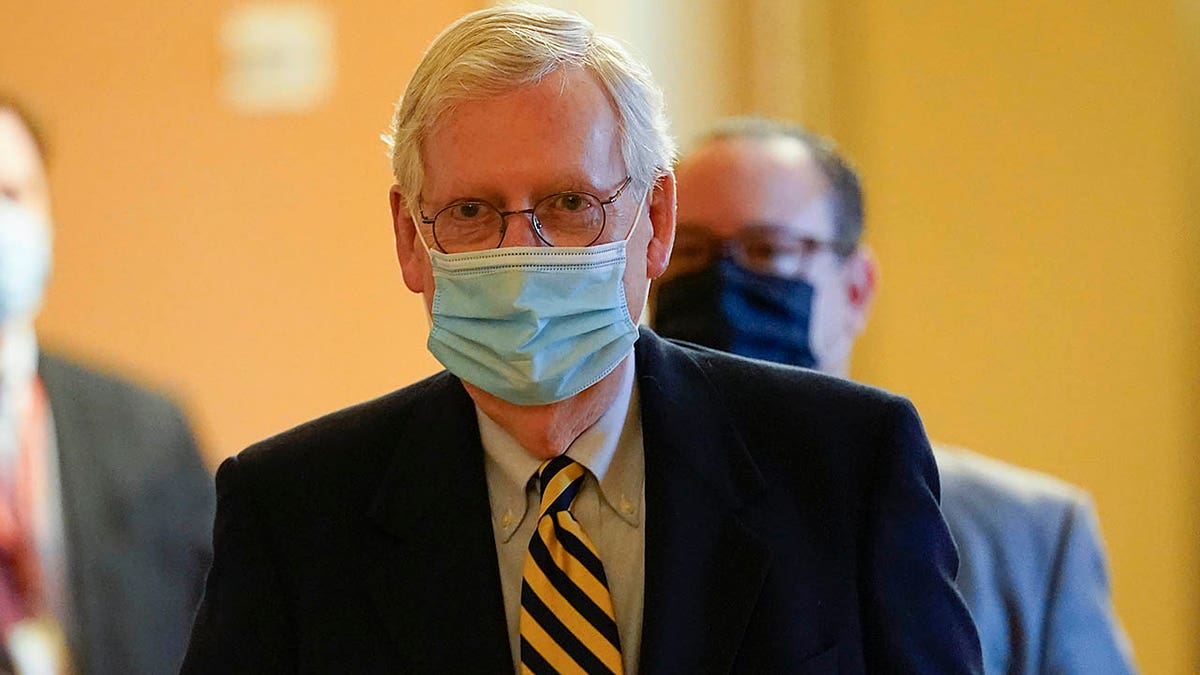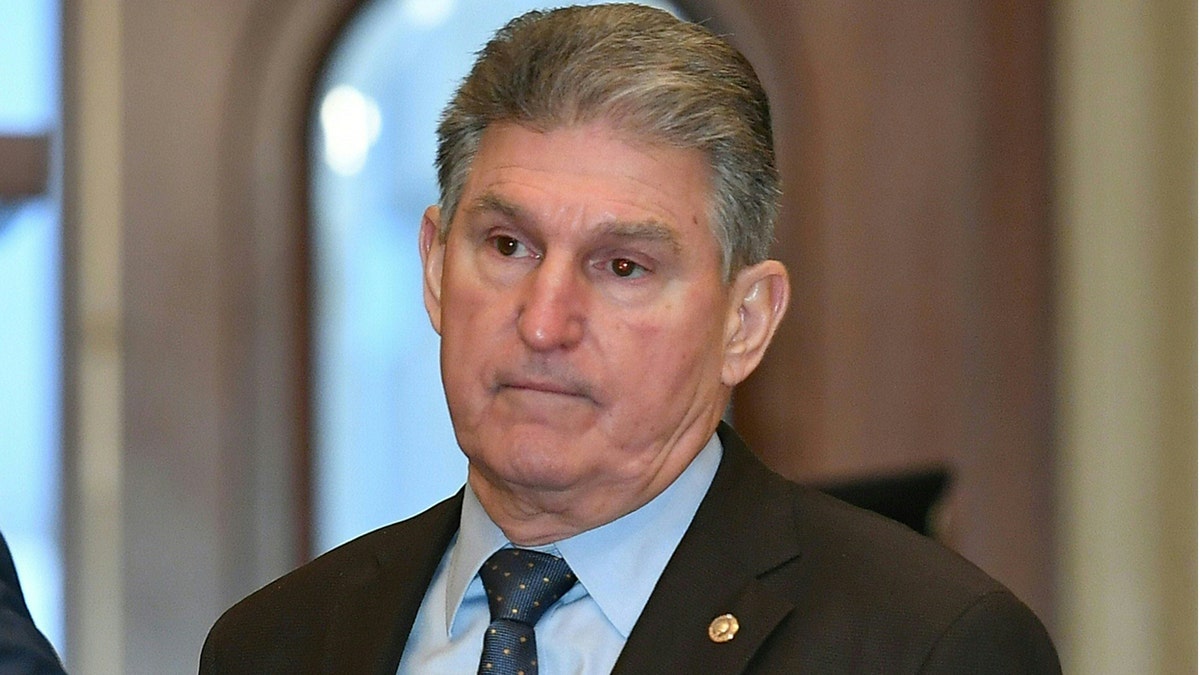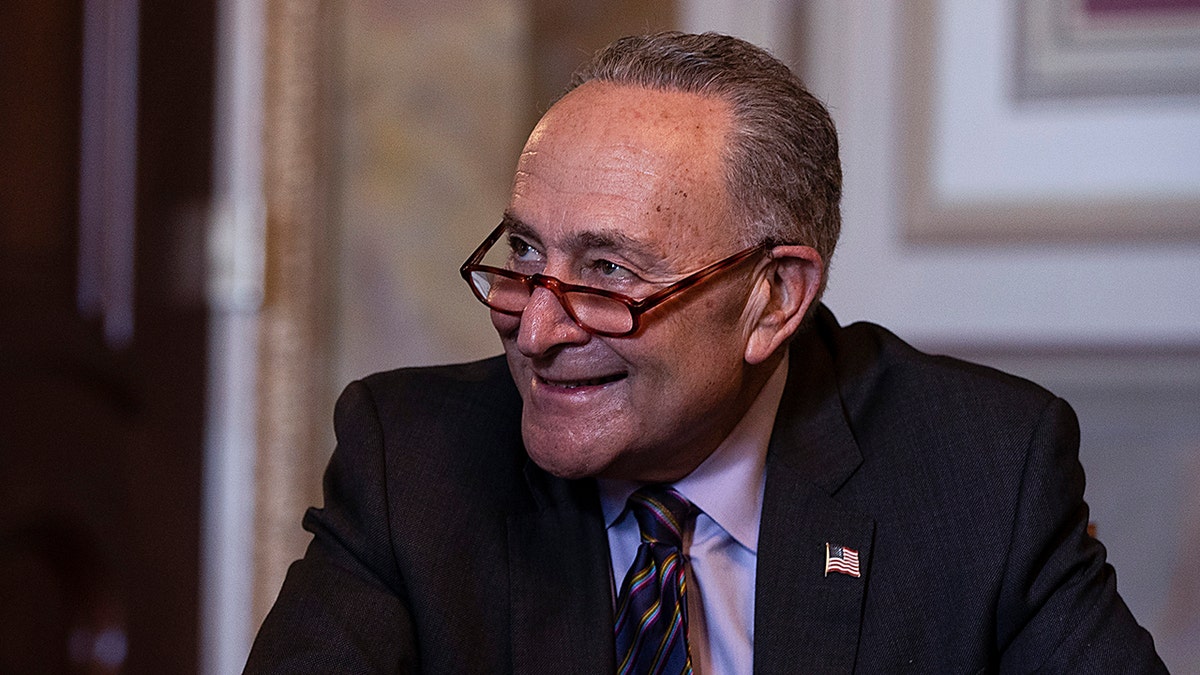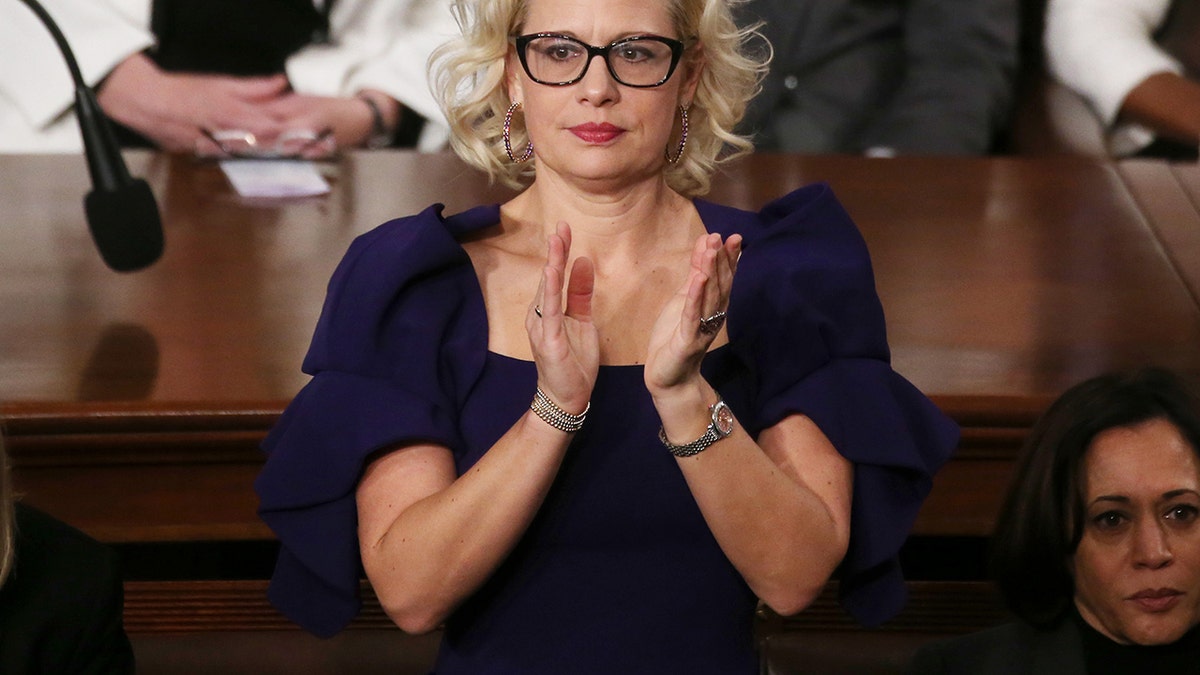House transfers article of impeachment to Senate
FOX News congressional correspondent Chad Pergram joins 'Special Report' with the latest.
Senate Minority Leader Mitch McConnell on Monday set aside his demand that a provision preserving the legislative filibuster be included in his power-sharing agreement with Majority Leader Chuck Schumer -- paving the way for the upper chamber to officially form committees and start tackling major legislative issues on the Biden agenda.
McConnell, R-Ky., decided to relent Monday, he said, after two moderate Democrats doubled-down on their previous stances in support of the legislative filibuster. This almost certainly means that Democrats, many of whom have said they want to get rid of the filibuster, won't be able to do so for at least the next two years.
The filibuster places a 60-vote procedural hurdle in the way of bills passing through the chamber and is considered a hallmark of the Senate.
"I've been very clear with you guys," Sen. Joe Manchin, D-W.Va., said in response to reporters hounding him on his filibuster stance Monday. "We’ve got to come together, so I do not support doing away with the filibuster under any condition. It’s not who I am."
The Washington Post, meanwhile, suggested Monday that Sen. Kyrsten Sinema, D-Ariz., would be open to getting rid of the legislative filibuster. A spokesperson for her office pushed back, telling the paper she is "against eliminating the filibuster, and she is not open to changing her mind about eliminating the filibuster."

Senate Minority Leader Mitch McConnell walks to speak on the Senate floor on Capitol Hill in Washington, Monday, Jan. 25, 2021. (AP Photo/Susan Walsh)
MCCONNELL RELENTS IN FILIBUSTER FIGHT, HERE'S WHY
The media attention on the filibuster -- because McConnell held up Senate business over the issue -- extracted two on-the-record statements from Democrats in favor of the filibuster. This likely will give McConnell leverage in the future if Schumer aims to get rid of it as he and many other Democrats have suggested.
"Today two Democratic Senators publicly confirmed they will not vote to end the legislative filibuster," McConnell said Monday. "They agree with President Biden’s and my view that no Senate majority should destroy the right of future minorities of both parties to help shape legislation."
He added: "The legislative filibuster was a key part of the foundation beneath the Senate’s last 50-50 power-sharing agreement in 2001. With these assurances, I look forward to moving ahead with a power-sharing agreement modeled on that precedent."
Schumer, D-N.Y., who had called McConnell's filibuster demand "extraneous" and "unacceptable," claimed his own version of a win.
"We’re glad Senator McConnell threw in the towel and gave up on his ridiculous demand," a Schumer spokesperson said Monday. "We look forward to organizing the Senate under Democratic control and start getting big, bold things done for the American people."

Senator Joe Manchin, D-W.Va., arrives for the impeachment trial of President Trump on Capitol Hill January 30, 2020, in Washington, D.C. (Mandel NGAN / AFP via Getty Images)
HOUSE DEMOCRATS PRESENT TRUMP IMPEACHMENT CHARGE TO THE SENATE, ALLOWING TRIAL TO BEGIN
Many in the left wing of the Democratic Party have advocated that Democrats should end the legislative filibuster for months or more, in order to pass legislation on liberal priorities.
"The filibuster is giving a veto to the gun industry, a veto to the oil industry, a veto on immigration," Sen. Elizabeth Warren, D-Mass., said during her presidential campaign. "If we want to make progress, it's time to end the filibuster."
Republicans have warned that Democrats might also pass priorities like statehood for Puerto Rico and Washington, D.C., or pack the Supreme Court.
The immediate result of McConnell laying off of his stance is that the Senate will be able to come to what is called an "organizing resolution." This is essentially a set of ground rules for how the Senate will work for the next two years.
No agreement between McConnell and Schumer is public yet, but they've said they are modeling their talks off of a 2001 agreement between the then-Republican and Democratic leaders. That was the last time the Senate was split 50-50 between Republicans and Democrats.
Likely, there will be an equal number of Republicans and Democrats on each committee. Rules would allow bills to make it to the floor even if they receive tie votes in committees.
Notably, Democrats will almost certainly be the chairs of Senate committees under the agreement. During the Senate's awkward state of limbo over the past few weeks, Republicans were the chairs of committees even though Schumer was the majority leader with his 50-member caucus plus Vice President Kamala Harris to break ties on votes that fall along party lines.
With committees formed and rules for legislation in place, the Senate will be able to tackle some of the more thorny issues it's avoided the past couple of weeks. It hasn't taken up any major legislation or controversial nominees and instead has ushered through some of President Biden's less polarizing Cabinet appointments, especially those related to national security.

Senate Majority Leader Chuck Schumer. (Tasos Katopodis/Getty Images)
LIVE UPDATES: BIDEN WEIGHS IN ON IMPEACHMENT, SAYS DEMS WON'T HAVE THE VOTES TO CONVICT
But as the Senate begins working on Biden's major priorities -- like his $1.9 trillion coronavirus relief proposal -- Republicans will likely have the juice, thanks to the filibuster, to extract major concessions from Democrats.
The Senate once it is organized will only have a limited time to get done some of its more critical business, as the impeachment trial for former President Donald Trump looms the second week of February.
More broadly, the standoff could be a harbinger of things to come in Democrats' tenuous government trifecta with a historically thin Democratic majority in the Senate and little room for error in the House.
Schumer told Punchbowl News on Monday that "there's huge anger in my caucus" at McConnell over his decision to hold up the power-sharing agreement. He also told Punchbowl that he is "not letting Mitch McConnell dictate how the Senate runs."
There may be anger, as Schumer said. But at least two of the members of his caucus, Manchin and Sinema, backed McConnell's calls for preserving the filibuster.

Sen. Krysten Sinema, D-Ariz., applauds during the State of the Union address in the chamber of the U.S. House of Representatives on Feb. 4, 2020 in Washington, D.C. (Mario Tama/Getty Images)
Also by relenting now, McConnell is letting the Senate get organized before too much resentment builds against him among moderate Democrats for stalling Senate business. He therefore could be avoiding a mistake he said that Schumer made in the early days of the Trump administration.
CLICK HERE TO GET THE FOX NEWS APP
During a 2019 Federalist Society speaking engagement, the then-majority leader said that by blocking the nomination for Supreme Court Justice Neil Gorsuch in 2017, Schumer angered Senate Republicans who thought Gorsuch was an excellent nominee. Republicans were so upset that they were willing to do away with the filibuster for Supreme Court nominees, McConnell said, after fighting tooth and nail to keep the filibuster for lower-court nominees under former President Barack Obama.
"Schumer was advising his members to filibuster [Gorsuch]. Honestly, I thought that was a mistake," McConnell said. "I probably could not have gotten 51 of my members to do what we had argued against just a few years before and use the simple majority to lower the threshold to 51."
McConnell added: "I argued to my colleagues, if this guy, Neil Gorsuch, can't get 60 votes, in this Senate. There's no one ... who could be confirmed."
Fox News' Jason Donner and Chad Pergram contributed to this report.






